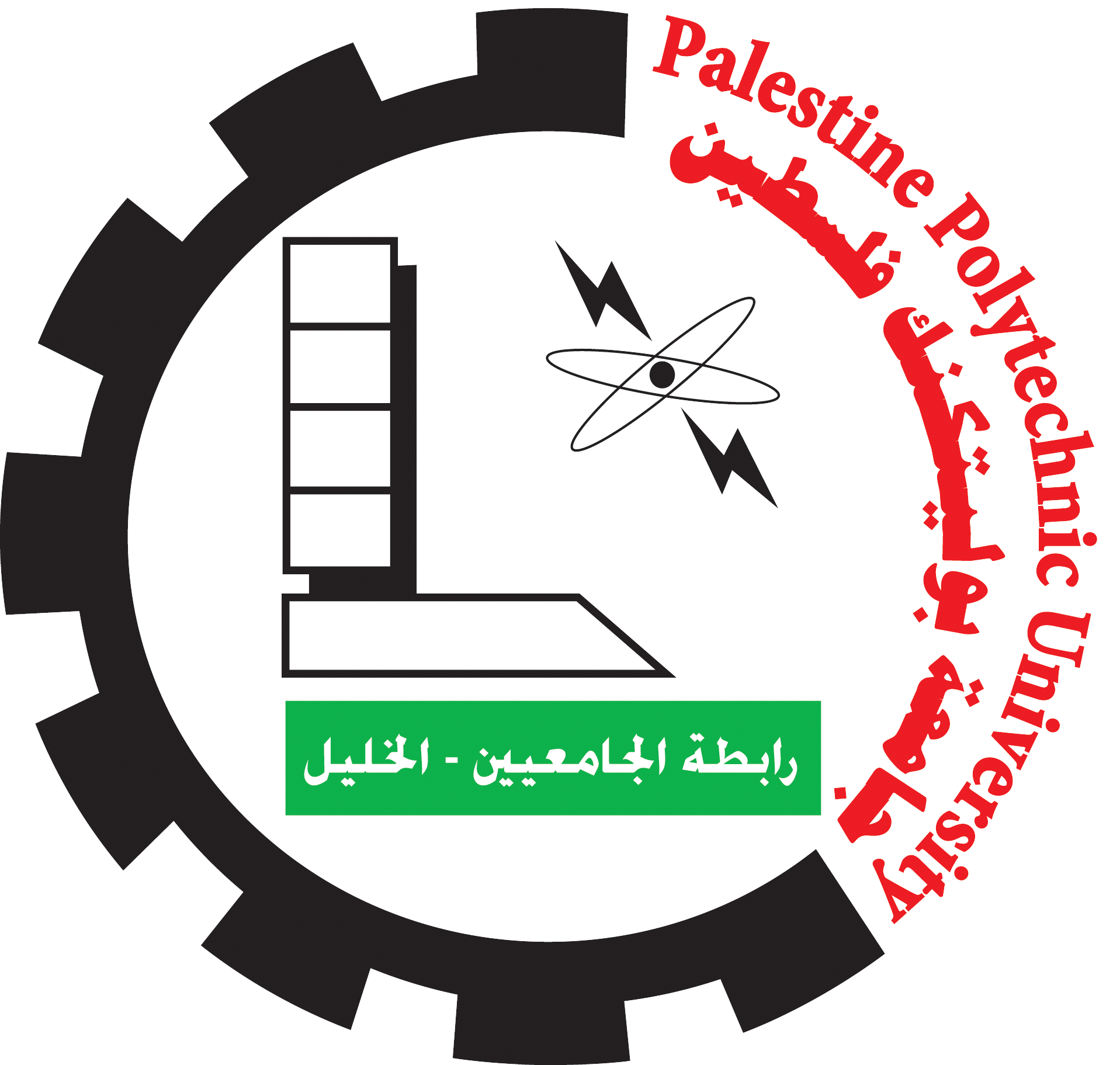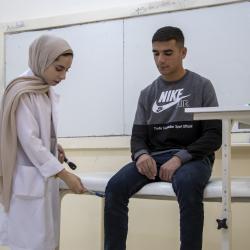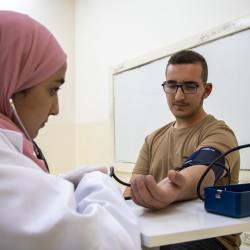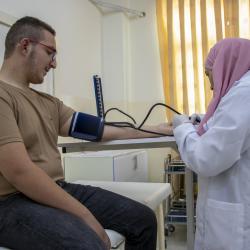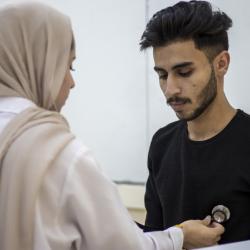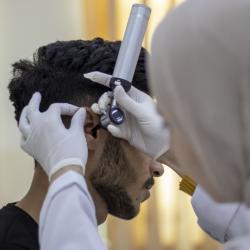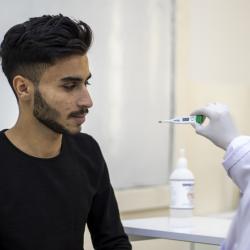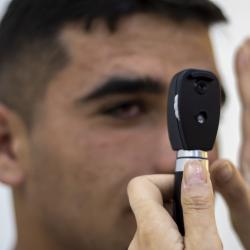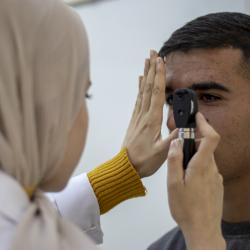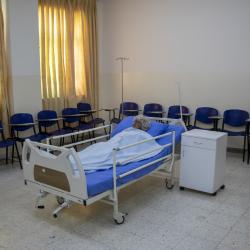The Physical Assessment Lab is a specialized educational environment that enhances students' skills in conducting comprehensive physical examinations from head to toe. The lab focuses on teaching students the essential techniques needed to perform accurate assessments, including taking the patient's medical history and reviewing their medical records.
The competencies and skills covered in the lab
- Vital Signs Assessment: Students learn how to measure essential vital signs such as blood pressure, pulse rate, temperature, and respiratory rate, and analyze the results to determine the patient's condition.
- Conducting Comprehensive Physical Examinations: This includes applying physical examination techniques from head to toe, including eye and ear exams, and assessing vital functions.
- Medical History Collection: Students train on how to take a comprehensive medical history from the patient, including previous and current symptoms and family history, which aids in determining the correct diagnosis.
- Results Analysis: Students gain skills in analyzing health data collected from examinations and tests to provide a comprehensive assessment of the patient's condition.
- Communication Skills Development: The lab enhances effective communication skills with patients, facilitating the collection of necessary information and conducting examinations in a professional and considerate manner.
- Teamwork Skills Application: Students learn how to work within a healthcare team, which requires collaboration and coordination with their peers during examinations and clinical assessments.
Targeted students in the lab
Second-year nursing students and bridging program students.
Courses covered in the lab
- This lab covers the course: History Taking and Physical Assessment lab (22062)."
- This course aims to teach students how to perform clinical assessment skills and document health history professionally and accurately by following organized steps. It enables students to conduct a comprehensive assessment from head to toe and listen to heart and lung sounds using a stethoscope. The course also introduces students to the normal and abnormal results of clinical assessments and their relationship to various diseases, as well as documenting the findings using modern scientific methods.
Major equipment and facilities in the lab
- Vital Signs Measurement Tools: Includes blood pressure monitors of various types (mercury and electronic) and thermometers.
- Vision Testing Device: Used to assess visual acuity and various eye issues.
- Ear and Tympanic Membrane Examination Device: Used to detect auditory problems.
- Patient Bed Equipped with a Manikin: Used to apply various clinical skills, allowing students to gain practical experience in clinical examination.
- Auscultation Device: Includes sounds of normal and abnormal heart and lung function, helping teach students how to assess cardiovascular and respiratory conditions.
- Neurological Reflex Hammer: Used to evaluate the nervous system's response to stimuli.
Occupational health and safety instructions of the lab
- Implementation of Occupational Safety Procedures: Students must adhere to the necessary preventive measures to limit the spread of infection and prevent its transmission among them. This includes following safety instructions meticulously at all times.
- Availability of First Aid Kit: A first aid kit is available in the lab, equipped to handle emergency situations, ensuring immediate care is provided when needed.
Lab team
- Ms. Zainab Turaireh.
- Ms. Ayah Sabarnah.
